The blessing and praying ceremony across the whole Shan State was conducted on August 20 which was headed by the Executive Council of Shan Sangha based in Panglong. The Council urging to participate on the occasion was made known on August 16.
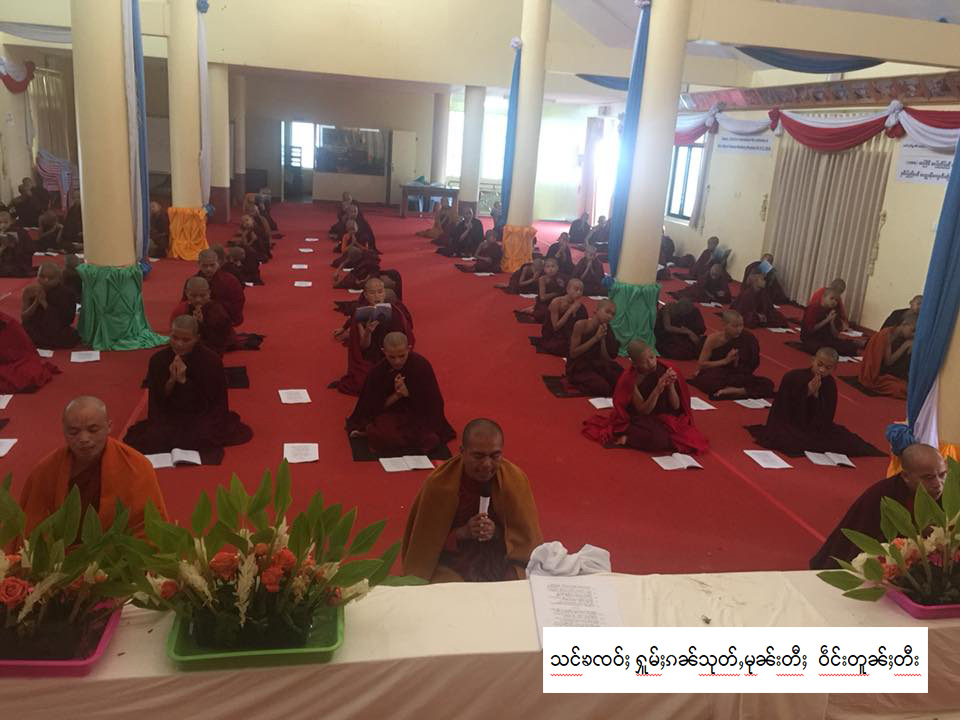
Accordingly, at 9 am the blessing and praying ceremonies for peace across Shan State and beyond were held in Panglong, Kunhing, Laikha, Kholam, Khesi, Kengtung, Namhsan, Kutkai, Hsipaw, Kyaukme, Hsenwi, Namkham, Muse, Yangon, Mandalay and so on, including monasteries in Thailand, Sir Lanka and other foreign countries, where the Shans reside.
Head of the Executive Council of Shan Sangha Ashin Nyanna Thiri said; “Currently if one looks at the situation in Shan State, we could see people are displaced stemming from military conflicts and suffering from natural catastrophes. The Sangha are also feeling and suffering the same as the people and that is why in order to stop the fighting among Shan armed forces we are praying and chanting metta (loving-kindness) prose according to the Buddhist principles,” reported the Democratic Voice of Burma.
He further stressed: “The occasions of praying for peace have taken place before. But it is quite unique and different today as the whole Shan State and the Shan exiles have done it together at the same time and date for the first time.”
He explained: “According to the history of Buddhism, this month of Wagaung (August) is the month sprinkling with metta. When Buddha was alive there were many instances where metta triumphed over the enemies. For example, an angry elephant that tried to harm the Lord Bhudda was calmed down through the power of metta,” adding, “ We believe in the power of metta.”
Specifically Ashin Nyanna Thiri told Shan Herald News Agency: “The main thing is for the people of Shan State to have peacefulness. The Shan Sangha showed their unity and wanted the armed conflicts to stop. Especially, to give the message to the two Shan armies to review their misunderstanding through meeting, negotiation and have consideration on the plight of Shan people and the Sangha.”
Background
The animosity between the Restoration Council of Shan State (RCSS) and Ta’ang National Liberation Front (TNLA) started almost immediately after the signing of Nationwide Ceasefire Agreement (NCA) in Nay Pyi Taw, on 15 October 2015.
Shortly after the signatory of the NCA, RCSS moved hundreds of its troops from the south of Shan State to the north. Accusations were rife that the RCSS moved its troops with ease through the government controlled paved road network, suggesting that it might be collaborating with the Tatmadaw, which the RCSS categorically denied.
While the Northern Alliance – Burma (NA-B), made up of the Myanmar National Democratic Army (MNDAA) or Kokang, Arakan Army (AA), TNLA or Palaung, and Kachin Independence Army (KIA), played down its involvement in the armed conflict, news coming out of social media suggested that it might be involved in a lot of clashes carried out between the TNLA and the RCSS that have lasted for some three years, without end in sight.
However, the Shan State Progress Party (SSPP) in cooperation with TNLA, both the non-signatories of NCA, trying to route out the RCSS is now an open one and relatively new development, as video clips popped up in social media that registered the conflict and as well, the ultimatum of the SSPP that the RCSS goes back to its original base in the south, which the TNLA has already repeatedly demanded.
But the RCSS maintained that it has been in the Shan State’s northern area since years, even though on a low profile, and the troops that went up from the south are newly trained troopers that have finished the military training, who are originally from the north.
The RCSS is said to send words that it didn’t like to fight against its own kind and offer to negotiate. The SSPP in turn said that the RCSS withdraw first before negotiation, but the latter replied that political positions should be ironed out between the two Shan armies first before its withdrawal.
Accordingly, the RCSS is for national democracy, while the SSPP is inclined to the people’s democracy, which is actually out of date, so to speak. In other words, the SSPP feels itself more attached to the United Wa State Army (UWSA), which is still structured along the communist way of doing things. Other than that insiders of SSPP said its boss, Lt. General Pang Fa is personally closed to the Wa leadership and even entrusted its organization’s war chest in Wa’s bank across the border.
The situation now is that the seven-member FPNCC, headed by the UWSA, is determined to push out the RCSS from the northern part of Shan State using the TNLA, SSPP, with the possibility of other NA-B members involvement. Thus, the ensuing armed conflicts are just the outcome from such decision taken in Pangkham some two years ago.
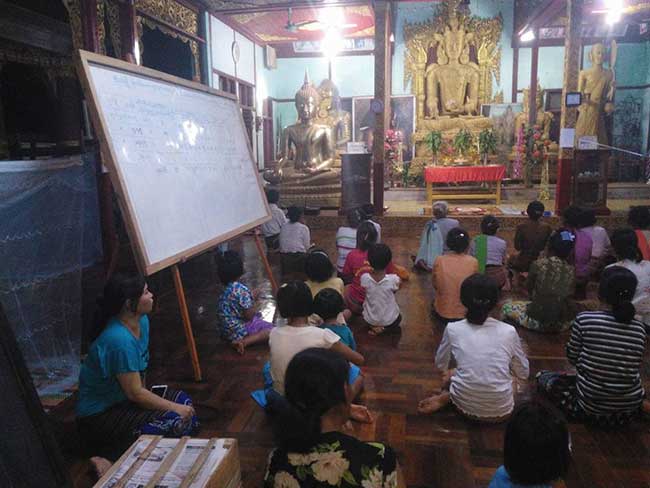
Present situation
And as the fighting goes on unabated between the RCSS and the TNLA-SSPP combined forces, with the Tatmadaw clashing with both the warring parties, the situation become more convoluted and doesn’t seem to be de-escalating, and even creating hundreds of Internally Displaced Persons (IDPs) in the process.
Joining the Shan Sangha’s praying and chanting ceremonies across the Shan State and elsewhere were the head office of Shan Literature and Culture Association, urging the two Shan armies to end the conflict and the Sao Hpas’ (the hereditary rulers of the Shan State until 1959) family members praying for peace in Shan State, including the whole country very recently, in Hsi Hseng Township, Banyin town in southern Shan State.
Outlook
Meanwhile, an unfortunate episode happened, when the TNLA abducted a Shan entrepreneur lady in Namkham on the ground that she or her husband informed the authorities beforehand resulting in a death and an arrested members of the TNLA in the process of their tax collection, which the government construed as illegal protection money, for their organization. At this writing, she is still in the TNLA’s custody, awaiting trial according to its organization’s law, which is confirmed by its spokesman.
SSPP has asked for her release and the Shan youth in Namkham has also demanded the same, arguing that she is innocent.
Speculations are rife that this incident could bloom into a racial conflict between the Shan and Palaung communities, who have been inhabiting the areas in a mixed pattern and harmoniously living together until the last three years.
If this happens, the SSPP will be seen in a bad light for going after its own kind in favor of the FPNCC alliance wish. The RCSS will also not fair well as it will have to defend its turfs, which would mean more disunity between the Shan resistance forces, when unity is duly needed.
In this convoluted and complex situation, no one knows if the chanting and praying of the Shan Sangha will be able to stop the animosity between the two Shan armies and create a peaceful atmosphere for all combatants operating within the Shan State.
Let us just hope that the Shan Sangha’s metta chanting will help overcome the raging armed conflicts and usher in a peaceful coexistence atmosphere, if not the comprehensive reconciliation.





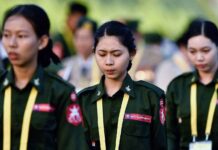
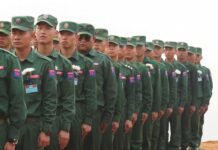
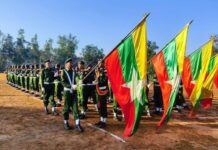








Leave a Comments